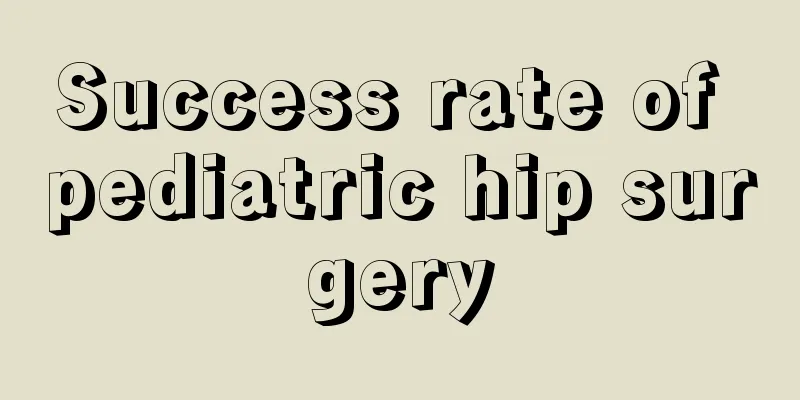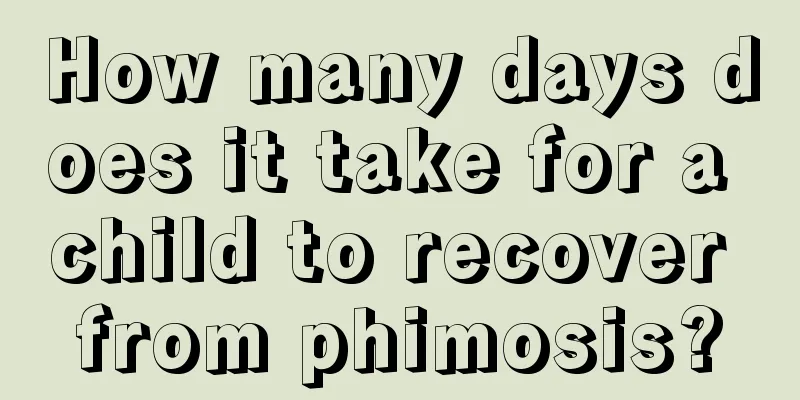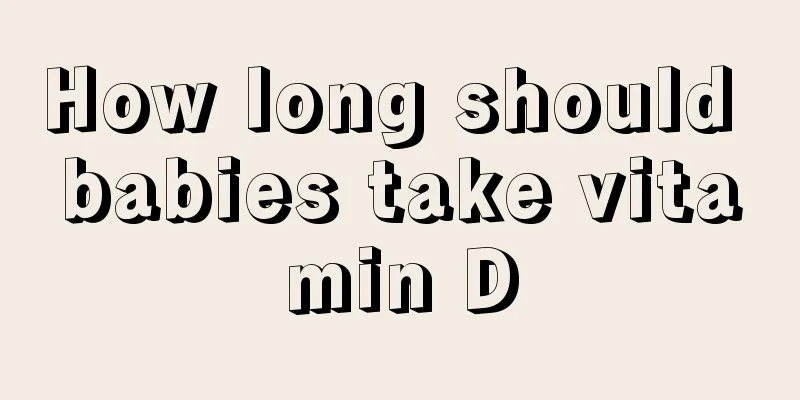Success rate of pediatric hip surgery

|
As newborns grow up gradually after birth and learn to walk, some children are prone to incorrect walking posture or walking with their feet tilted. This is because the child's hip joint is not well developed or there is a problem with the child's hip joint. Hip surgery is a therapeutic operation that needs to be done as early as possible. Generally, the success rate of hip surgery for children is very high, which depends on their own situation. What is the success rate of pediatric hip surgery? Congenital hip dislocation has a general incidence rate of about 0.3% in the north, with more girls than boys and more left sides than right sides. For children with congenital hip dislocation, the earlier the treatment, the better the recovery. If the treatment is not timely, it will cause disability. Careless parents usually don't notice anything abnormal until their children start to learn to walk. For example: the child walks with a limp; or sways from side to side like a duck; when standing, the child's waist protrudes forward particularly obviously. These may all be signs of a dislocated hip. Some parents lack common sense and may think that these are normal movements when children just learn to walk, or they may regard them as problems such as bow legs and O-legs, which can easily delay treatment. The earliest symptom of hip dislocation is restricted abduction and external rotation of the hip. Let the child lie flat on the bed, bend his knees to 90 degrees, and then slowly abduct the hip. Do not lie flat on the bed. It is recommended that children undergo a simple "frog test" examination after birth, that is, flex the child's knees and hips, and spread the hip joint outward. If the expansion is smooth, it is normal, otherwise further examination is needed. In addition, you can also observe whether the child's buttocks and thigh lines are symmetrical. If they are not symmetrical, you can go to the hospital for further examination by an orthopedic doctor. When changing your child's diapers, pay attention to whether there is any popping or abnormal movement in the child's hip joint. If so, take him to the hospital for another check-up by an orthopedic surgeon so that early diagnosis and treatment can be achieved. The earlier hip dislocation is treated, the better. Treatment is simplest and most effective for infants under 2 months old, and they can completely recover to normal. Children between 3 months and 1 year old can also achieve ideal results through reduction and fixation. Children aged 1-3 years old have been dislocated for a long time and the soft tissue around the hip joint has varying degrees of contracture. Therefore, traction is required before reduction, and then reduction can achieve relatively ideal results. For children aged 3 to 8 years old, the dislocation lasts longer, the soft tissue contracture is more serious, and the acetabulum is poorly developed, making manual reduction extremely difficult. Therefore, most of them require surgery to reposition the hip joint. Children over 8 years old are more difficult to treat and the effect will be worse. |
<<: What happens if you hit a child on the face often?
>>: What should babies eat to promote calcium absorption?
Recommend
What to do if your child is anemic? Here are some tips for you to take care of him
If a child is picky about food, he or she will be...
What is onychoblastoma?
Children are a relatively vulnerable group and ar...
How are oral hemangiomas treated in children?
Oral hemangioma in children is a common benign tu...
What to do when your child loses a tooth
Children will change their teeth when they reach ...
Causes of high white blood cell count in infants
For many babies, their bodies are not fully devel...
Is 37.2 degrees a fever for a baby?
Most babies are in good mental state at ordinary ...
How to give your baby a tummy massage
Many new parents, due to their lack of feeding ex...
What to do if children cough in the morning
Cough is a common disease among pediatric patient...
6 ways newborns communicate
After the baby is born, parents are excited and w...
Causes of loose teeth in children
What are the causes of loose teeth in children? M...
Treatment for cerebral palsy in children
There are more and more children suffering from c...
What does it mean when the baby has obvious blue veins on his head?
If there are blue veins on the baby's head, p...
Lymph nodes behind the head of children
Parents may find lymph nodes at the back of the c...
What is the cause of bloody mucus in baby's stool?
If there is blood and mucus in your baby's st...
Early childhood education course for six-month-old babies
Six-month-old babies, as they begin to grow teeth...









